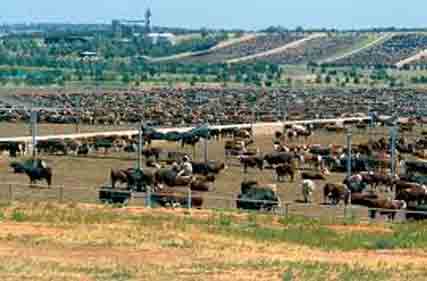
With most feedlots having taken up the guidelines voluntarily the decision to include them within the NFAS ensures that all feedlot operators across Australia will operate and comply with a stewardship plan.
The Australian cattle feedlot industry has stepped up its commitment to antimicrobial stewardship by announcing its world leading antimicrobial guidelines will become mandatory from January 2022.
The move is a significant milestone undertaken to further elevate Australia’s position as global leaders when it comes to antimicrobial stewardship and the commitment to responsible use of antimicrobials.
Australian Lot Feeders’ Association (ALFA) President, Bryce Camm, said the industry was proud to continue its stewardship journey by formalising the guidelines as being mandatory from 2022.
“The emergence of antimicrobial resistance is a relatively new global frontier but one that the Australian red meat and livestock industry recognised some time ago, when in 2018 Australia’s feedlot industry became one of the first in the world to launch formal guidelines to minimise the risksaround resistance.
From 1 January 2022 the guidelines will become an auditable requirement of the National Feedlot Accreditation Scheme (NFAS); the cattle feedlot industry’s critical oversight and compliance program independently managed by AUS-MEAT, Australia’s leading agricultural auditing and certification body.
Mr Camm said that with most feedlots having taken up the guidelines voluntarily the decision to include them within the NFAS ensures that all feedlot operators across Australia will operate and comply with a stewardship plan, and this will be assessed through independent annual audits conducted by AUS-MEAT.
“Stewardship is a key action industry can take to preserve the efficacy of these medicines and help prevent the emergence of resistance and importantly ensure we can continue to access these important tools into the future.
Mr Camm said that while Australia was already recognised for having the highest quality beef in the world, incorporating the guidelines into NFAS would further underpin confidence in our product while also helping livestock producers and lot feeders manage the health and welfare of cattle.
“In addition to promoting the adoption of stewardship practices, the industry supports improved monitoring of use and surveillance of resistance to help inform policy and practice which is part of the broader strategy to reduce the risk of antimicrobial resistance,” Mr Camm said.
